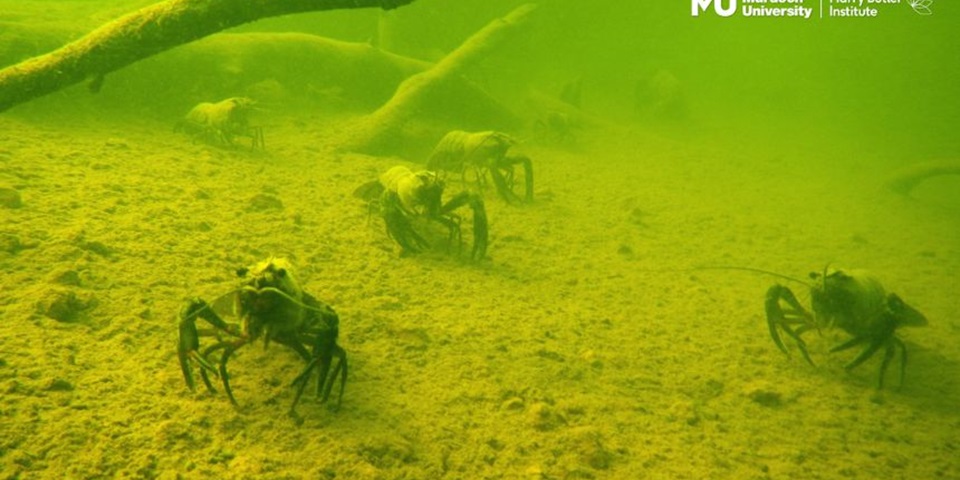Research securing our future
As the first university in Western Australia to become a signatory to the United Nations' Sustainable Development Goals, we have a long standing and deep commitment to delivering research that helps secure the future of the world around us.
Our community is home to global experts in forest ecology, fire management, marine ecosystems and environmental engineering, all of which are pursuing the most pressing environmental challenges of our time.
We use our biodiverse campus as a living laboratory to help drive positive change and welcome everyone to join this journey and learn more about the critical research taking place here.
Firefighting tools can help save threatened species

As catastrophic weather events and bushfires become more regular, our threatened species are at risk of displacement and extinction. A novel water management approach can help address both.
Researchers from Murdoch University’s Harry Butler Insitute are leading a new project addressing both the wellbeing of Australia’s aquatic ecosystem and firefighting solutions amid dryer and hotter conditions.
As rainfall, streamflow and groundwater levels decline in Australia’s south, there is a renewed need for access to water points, particularly in remote bushland areas.
To address the issue, a network of fire water points was built in bushland across Australia, providing a water source for fire crews and emergency services.
Over time, these water points became a refuge for aquatic animals, which previously relied on natural waterholes to survive the summer.
Project lead Dr Stephen Beatty believes these fire points potentially hold the key to safeguarding the future of aquatic ecosystems in Australia’s south as the climate warms and dries.
He said fire water points will become increasingly important not only for mitigating the growing threat of bushfires but also for their value as climate refugia for native freshwater biodiversity.
Post-doctoral fellow Dr Mark Allen is managing the collaborative project, which would determine how and where new fire water points should be constructed.
Dr Allen said this would in turn “help combat the growing threat of bushfires while also providing additional climate refuges for native biodiversity”.
More than 100 water points will be surveyed for aquatic and terrestrial flora and fauna throughout the project across the Warren Bioregion on Noongar Boodjar in WA’s southwest, a globally recognised hotspot for at-risk species.
Scientists and students from Murdoch University, The University of Western Australia and Deakin University in partnership with Traditional Custodians and citizen scientists will work alongside the Department of Biodiversity, Conservation and Attractions, the Department of Primary Industries and Regional Development and the Department of Water and Environmental Regulation to gather data.
The project has been made possible through funding from the Ian Potter Foundation, one of Australia’s major philanthropic foundations.
